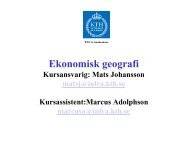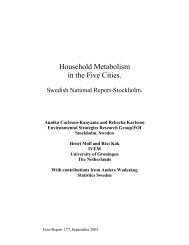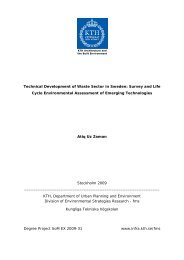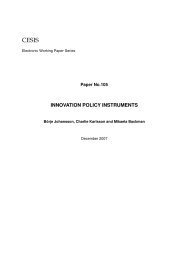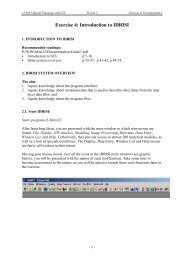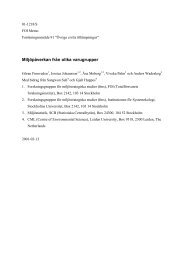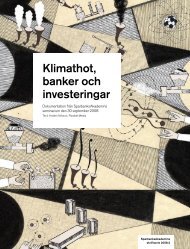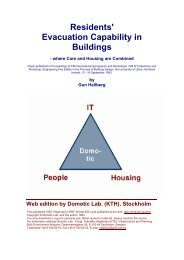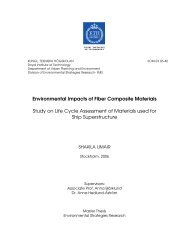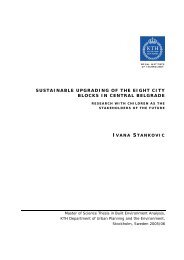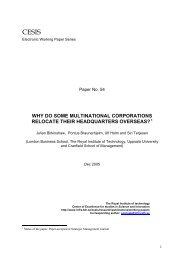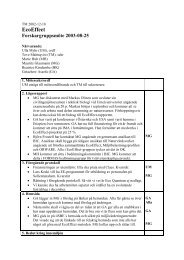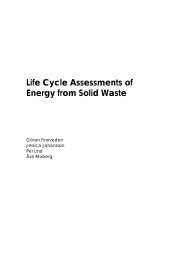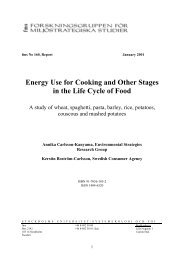Stockholmarnas resvanor - mellan trängselskatt och klimatdebatt
Stockholmarnas resvanor - mellan trängselskatt och klimatdebatt
Stockholmarnas resvanor - mellan trängselskatt och klimatdebatt
Create successful ePaper yourself
Turn your PDF publications into a flip-book with our unique Google optimized e-Paper software.
travel habits with new destinations, errands and ways of travel, temporally<br />
and technologically, e.g. to a new shopping centre, exercise on the way<br />
to work or project work from home, and these can be good or bad from<br />
an environmental perspective. Humanists can provide analysis of people’s<br />
conditions and choices. The main and subsidiary motives for actions in a<br />
certain context can be reviewed and more socially beneficial (environmentally<br />
friendly) patterns suggested.<br />
Research contributes to the overarching issues in environmental (sustainability)<br />
drivers of change. Regarding the problems dealt with in this<br />
thesis, it is likely that particular progress can be made in encounters between<br />
researchers and disciplines: Cultural analysts contribute knowledge<br />
on everyday life in terms of cultural patterns, while other researchers formulate<br />
problems and prerequisites. From an environmental perspective,<br />
traffic volumes, emissions and desired change can be calculated on the basis<br />
of a certain target, e.g. the national climate goals. Other researchers consider<br />
the potential for change through economic policies, or via planning<br />
buildings and infrastructure. Yet others consider the potential of technological<br />
development. Collaboration between cultural analysis and other<br />
approaches could tackle e.g. the issue of how travel habits can be changed<br />
through internal and/or external circumstances in people’s lives.<br />
I would like to work further on facilitating such cross-disciplinary<br />
research. Here, I borrowed the travel habit concept from transport economics<br />
and cultural geography and showed that not all trips are habitual (although<br />
regarded as such in some disciplines) and what the habitual aspect<br />
means for people’s attitude to travel. This knowledge must now be transferred<br />
back to disciplines such as transport economics and cultural geography,<br />
so that their analyses can clarify the impact of the habit aspect on<br />
e.g. travel destinations, frequency and duration, or how people in a certain<br />
area will react to a new traffic policy measure.<br />
The challenge is to create a picture of the balance between factors determined<br />
at different levels, e.g. political measures and cultural habits and<br />
values, and their interactions. This will require better interaction between<br />
the disciplines tasked with studying the different levels.<br />
184 Summary



